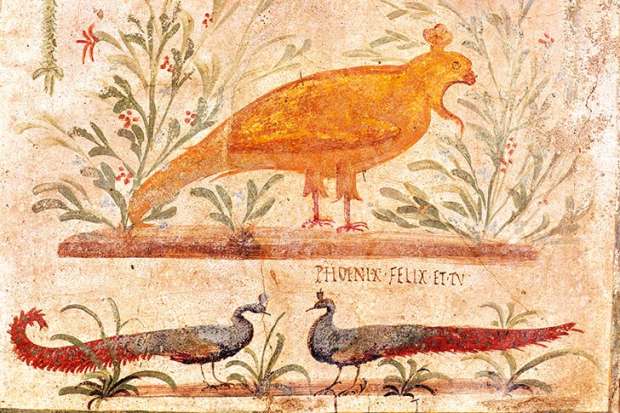The Argentinian writer César Aira is a prodigy: at the age of 68 he has published, according to a ‘partial bibliography’ on Wikipedia, 67 novels (plus non-fiction, plays and translations into Spanish from four languages). It’s a record made only slightly more believable by the fact that the novels are mostly around 100 pages long. ‘Automatic writing’ is often mentioned in the books themselves (Aira supposedly doesn’t revise much, or at all). In 1992, for example, he published five novels — a personal best which he nonchalantly repeated in 2011.
Certainly, he glides through — or over —his stories, with the light irony and digressive versatility of Ovid, poet of the Metamorphoses. The effortlessness seems supernatural (even the name Aira recalls the breeze, as in ‘Buenos Aires’). And in this there is an irresistible harmony with his prevailing themes, which might be described as post-magical-realist: sci-fi-influenced notions of the uncanny, and the interpenetration of real life and creative mental processes. Magical machines often feature in the stories — and Aira himself seems to be one of them, producing these books as if in an infinite line, each one appearing almost instantaneously, as if fully formed, completely different from any other, yet all in obedience to some secret set of laws that the reader senses without being able to discern.
Two beautiful examples, now translated by Nick Caistor, come from widely distant points in Aira’s career, offering an intriguing suggestion of his development. The Proof, written in 1989, opens with a nerdy 16-year-old girl walking at dusk down a city street thronged with other teenagers. Marcia feels herself slowing down ‘through the soft resistance of the light and darkness, silence and the glances exchanged between face and face’. Suddenly, she is crudely accosted by two lesbian ‘punks’. The three end up going to a café, where they have a long, taut, unpredictable debate about love, which lasts through 50 pages. (Aira’s stories always have a highly challenging, even bewildering philosophical core; that they are nevertheless so easy and fun to read might be their most supernatural quality.)
The punks are nihilists, but they believe in love — and they love Marcia. Eventually, they offer to prove it to her: in an astounding finale, this ‘proof’ begins with one of the punks locking the doors of a nearby supermarket from within (‘when a padlock closes it’s as if it will never be able to be opened again, as if the key had somehow already been lost’). It culminates with a woman set on fire:
She had turned into a monster, but a dancing monster … She became a vegetable, a stone, a stone colliding, the sea, an octopus automaton … a planet, a crackling sweet wrapper … and at the same time she was no more than a gaze, a tiny insistence.
The Proof is an exceptionally good novella, in the mould of other avant-garde Latin American writing of that era; not dissimilar to something Roberto Bolaño might have written, or the Colombian Andrés Caicedo — had that gifted young man not made the dreadful mistake of killing himself on the day of his first novel’s publication. Interestingly, Aira had been publishing at a normal rate until that time. The hyperactivity began in the 1990s; and by 2005, when The Little Buddhist Monk was written, he had firmly established himself as a unique literary phenomenon.
Here, a French couple travel to Korea to photograph Buddhist temples. They meet a tiny monk obsessed with the western world (‘what he saw around him seemed like the misleading image of a reality that waited on the other side of the planet’), who offers to be their guide in the hope of eventually following them home. Aira typically uses an interplay between the mundane and the bizarre: mundane interests pursued in a bizarre environment, for example (or vice versa, as in The Proof). The tourists are so excited by their luck at meeting such an ideal guide to ‘the exotic’ that they fail to notice, among other things, that the cloudlessly blue sky overhead contains no sun.
Elsewhere, Aira has referred to his ‘mental hyperactivity’; how ‘everything races forward, savagely pushed from behind by what keeps coming through that accursed valve’. Sometimes it’s as if his imagination outpaces the composition; the bizarre seeps into the mundane, or erupts in a spectacular overload. Often these disturbances are linked to a sexual tension. This seems straightforward enough in The Proof; in The Little Buddhist Monk it is made half-explicit in a denouement that is so dismayingly sad, and so ghastly, yet so satirically piercing, that one doesn’t know whether to laugh or cry.
Got something to add? Join the discussion and comment below.
Get 10 issues for just $10
Subscribe to The Spectator Australia today for the next 10 magazine issues, plus full online access, for just $10.
You might disagree with half of it, but you’ll enjoy reading all of it. Try your first month for free, then just $2 a week for the remainder of your first year.














Comments
Don't miss out
Join the conversation with other Spectator Australia readers. Subscribe to leave a comment.
SUBSCRIBEAlready a subscriber? Log in